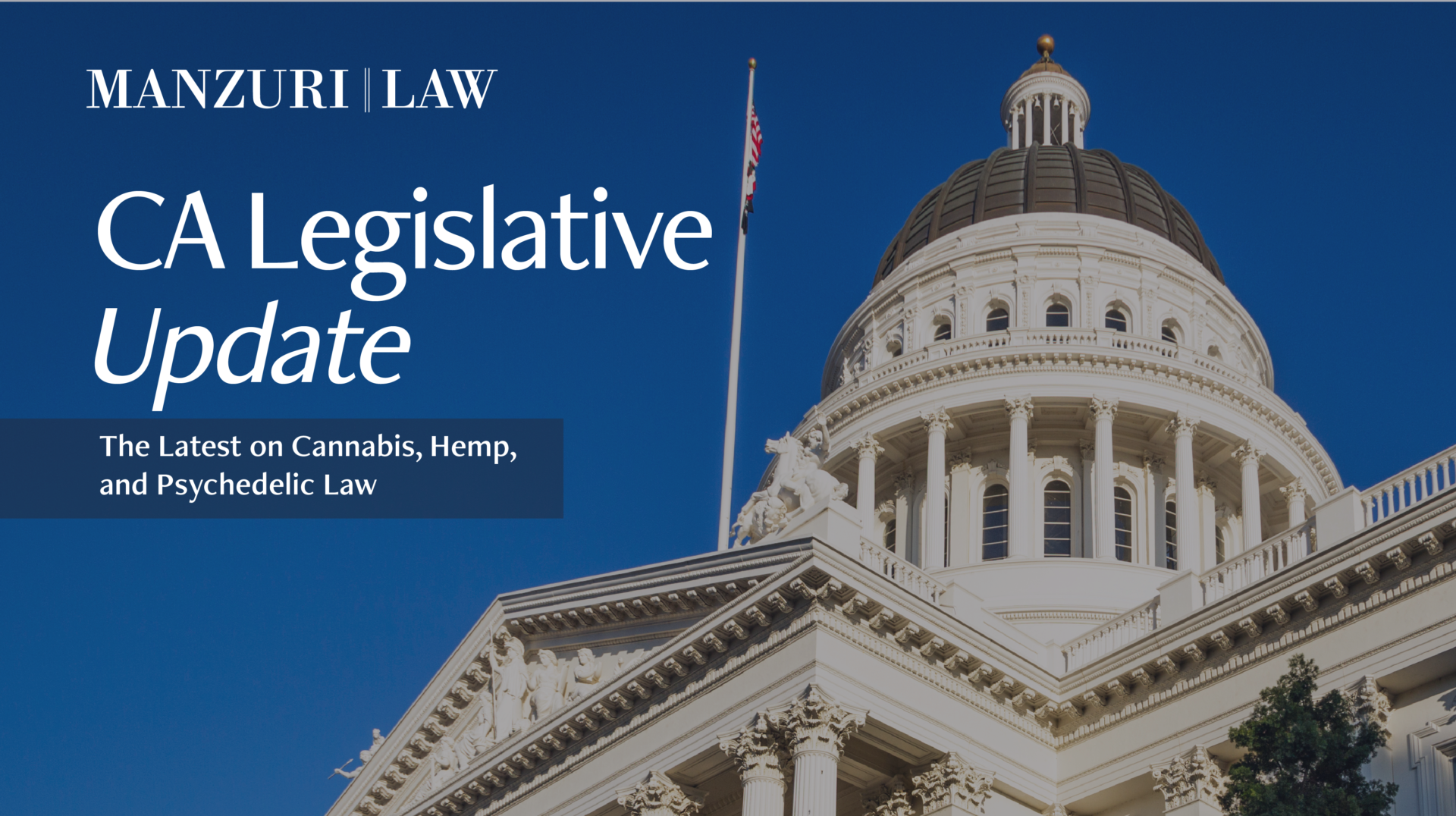2021 brought major changes for California’s cannabis industry between the establishment of a new department and the enactment of important new laws and regulations. In this article, we break down the major highlights of the state’s new cannalaws: AB 141, SB 160, and SB 166. Recently, we also wrote in depth on California’s new hemp law (AB 45).
AB 141, SB 160, and SB 166 Highlights
In July, 2021, the Legislature passed the first cannabis budget trailer bill, AB 141. It set up the new Department of Cannabis Control (DCC) and attempted to address some of the challenges the industry has faced regarding provisional licenses and daily operations. SB 160 was the first cleanup bill for AB 141, tweaking some provisions related to trade samples, delaying the appellations of origins program to January 1, 2022, and making several technical changes. It also made several updates to the provisional licensing program, providing additional clarifications on the California Environmental Quality Act (CEQA) provisions and gave some flexibility for equity operators on provisional licensing deadlines. SB 166 was the second cleanup bill, placing pressure on the DCC to implement a fee waiver and deferral program for equity applicants by January 1, 2022 and January 1, 2023, respectively.
Here’s what you should know:
-
Deadlines and Considerations for Provisional Licenses under BPC § 26050.2
- Issuance of New Provisional Licenses
- Issued until June 30, 2022; applications must be submitted by March 31, 2022 (except for equity and cultivation applicants).
- Issued only to applicants who have submitted a completed license application to DCC, including evidence of full CEQA compliance or progress towards it.
- Equity applicants
- Can be issued new provisional licenses until June 30, 2023; applications must be submitted on or before March 31, 2023.
- Cultivation
- May be issued until September 30, 2022; applications must be submitted by June 30, 2022.
- Applications may not be for a premises that exceeds 20,000 square feet of total canopy for outdoor cultivation.
- On or after January 1, 2022, a provisional license may not be issued if it would cause the licensee to hold multiple cultivation licenses on a contiguous premises to exceed one acre of outdoor cultivation or 22,000 square feet of mixed-light or indoor cultivation.
- Renewals
- Prohibits DCC from renewing provisional licenses after January 1, 2025, and officially ends the provisional licensing program on January 1, 2026. Until then, DCC may renew provisional licenses if conditions are met.
- DCC can no longer renew a provisional cultivation license after January 1, 2023 if the provisional license would cause the licensee to hold multiple cultivation licenses on a contiguous premises to exceed one acre of outdoor cultivation or 22,000 square feet of mixed-light or indoor cultivation.
- After January 1, 2024, no provisional license that causes a licensee to hold multiple cultivation licenses on contiguous premises to exceed one acre of total canopy for outdoor cultivation or 22,000 square feet for mixed-light or indoor cultivation will be valid.
- More CEQA
- Clarifies that if a lead agency for environmental review complies with CEQA, they are not subject to comply with CEQA benchmarks in SB 160.
- On or after July 1, 2023, clarifies that demonstration of CEQA compliance occurs when the lead agency has certified to DCC that it has conducted a reasonably comprehensive site-specific review and has reviewed, prepared, and deemed complete an initial study, addendum, or specific milestones, in preparation for approval of an annual license.
- Issuance of New Provisional Licenses
-
Trade Samples
- Requires DCC, no later than January 1, 2023, to develop regulations related to cannabis trade samples, including rules on the definition and the quantity that may be designated.
- Trade samples must be:
- Tested but may be returned to licensed cultivators and manufacturers.
- Labeled in a specific manner and recorded in Metrc.
- Only given to licensees about new or existing cannabis/cannabis products; they may not be given directly to customers.
- Provided free of cost/consideration/compensation/payment.
- Trade samples may be transported between licensees by a licensed distributor or by employees in vehicles not registered to a licensed distributor. If in a non-registered vehicle, employees are limited to personal possession limits of cannabis.
- After January 1, 2022, trade samples will be exempt from the cultivation tax, unless it is sold.
-
State Fee Waivers/Deferrals for Equity Applicants
- State equity applicants are defined as follows:
- In jurisdictions with equity programs, applicants must be local equity applicants or licensees.
- In jurisdictions without equity programs, applicants must be local applicants or licensees.
- All equity applicants must alone, or in combination with other equity applicants, own at least 50% of the business. In addition, they must have one of the following: 1) a prior cannabis-related arrest or conviction under criminal justice policies related to cannabis prohibition; 2) reside in a low-income household; or 3) reside in an area that has been disproportionately impacted by past criminal justice policies related to cannabis prohibition.
- State equity applicants are defined as follows:
Next Steps
If there’s anything we’ve learned over the years, it’s that all commercial cannabis and hemp businesses must be nimble and willing to roll with the punches when it comes to regulatory compliance, licensing, financing, and well… all the things. It’s much easier to maintain your fighting weight when you’ve got Manzuri Law in your corner. If you need help with any cannabis or hemp business law matters, please do not hesitate to reach out. We’re really the best at what we do.
Disclaimer: This article has been prepared and published for informational purposes only and is not offered, nor should be construed, as legal advice.
Contact one of our cannabis law firm specialists today by phone at 310-912-2960 or online.

